Hybrid
online learning and on-campus residency experiences
16 months
to complete (four semesters)
56
credit hours
OBU’s Master of Science in Speech-Language Pathology (MS-SLP) program provides exceptional, Christ-centered preparation for those called to serve others through the prevention, assessment, and treatment of communication and swallowing disorders. Our experienced faculty combine professional expertise with personal mentorship, creating a learning environment that emphasizes spiritual growth, servant leadership, and academic excellence.
Rooted in Christian values, this program integrates innovative coursework, hands-on clinical training, and service-learning experiences to prepare you for a meaningful career as a speech-language pathologist.
In just 16 months, you will complete an accelerated hybrid curriculum that blends online coursework with immersive on-campus residencies and clinical externships in your own community. This flexible format equips you to grow both personally and professionally as you meet the needs of individuals across the lifespan with compassion, competence, and a commitment to Christ-centered care.
Application and Launch Dates
Applications will open in CSDCAS on July 15, 2025.
Pending CAA approval of candidacy status, applications will be for Fall 2026 and Spring 2027 cohort starts.
Application deadlines for each cohort start are listed in CSDCAS.
Prepare to Apply
OBU recognizes that students come to the field of Speech-Language Pathology from a wide range of academic and professional backgrounds. To support those who are called to serve but may not hold a bachelor’s degree in Speech-Language Pathology (SLP) or Communication Sciences and Disorders (CSD), OBU offers multiple online pathways that prepare students for graduate study. These include fully online SLP Core Prerequisites for students with a non-SLP/CSD degree, as well as online options for bachelor’s completion for SLPAs seeking to advance their education. Each option reflects the university’s commitment to academic excellence, community impact, and Christ-centered preparation.
SLP Core Prerequisite Information
Online Bachelor's Degree Options
If you have a bachelor’s degree in Speech-Language Pathology (SLP) or Communication Sciences and Disorders (CSD) you are ready to apply without additional coursework.
SLP Application and Requirements
Accreditation Status
The Master of Science (MS) education program in Speech-Language Pathology (SLP) (distance education) at Oklahoma Baptist University (OBU) is an Applicant for Candidacy by the Council on Academic Accreditation in Audiology and Speech- Language Pathology (CAA) of the American Speech-Language-Hearing Association (ASHA), 2200 Research Boulevard, #310, Rockville, MD 20850, 800-498-2071 or 301-296-5700.
Program Information
The Master of Science in Speech-Language Pathology (MS-SLP) provides high-quality, entry-level training for a career as a Speech-Language Pathologist (SLP). The innovative and engaging curriculum includes academic coursework and clinical experiences and is delivered in a hybrid accelerated format. Students will combine asynchronous online coursework with synchronous course meetings and required in-person, on-campus residency experiences at the OBU campus in Shawnee, Oklahoma to prepare them for clinical externships in their communities. Expert faculty integrate Christian values, spiritual growth, academic excellence, and clinical experiences into the curriculum to prepare students for SLP clinical practice. Through state-of-the-art online learning and engaging and comprehensive hands-on experiences, students will acquire the knowledge, skills, and attributes to enter the field of speech-language pathology as competent professionals.
The program is designed to meet accreditation standards set forth by the Council on Academic Accreditation in Audiology and Speech-Language Pathology (CAA) of the American Speech-Language-Hearing Association (ASHA) and to prepare graduates for entry-level clinical practice. Upon successful completion of the MS-SLP program, the national board examination (Praxis), and the Clinical Fellowship Experience (CF), graduates will be eligible for state licensure and the national credential, the Certificate of Clinical Competence in Speech-Language Pathology (CCC-SLP).
MS-SLP Academic and Clinical Handbook
Online Learning
The online component of the program offers both asynchronous (online instruction and assignments) and synchronous (live virtual classes with professors) learning opportunities. This flexible structure allows you to engage with course material at your convenience while also benefiting from personal interactions and mentorship.
You will learn and apply foundational principles and methods of speech-language pathology clinical practice through a dynamic online platform featuring video lectures, case studies, practical simulations, and collaborative projects. The curriculum is intentionally designed to cultivate critical thinking, clinical reasoning, ethical decision-making, and professionalism with a focus on Christ-centered care.
On-Campus Immersions
Students will travel to the OBU campus for two one-week on-campus residency experiences. The residency experiences prepare students for off-site placements in educational/pediatric, medical/adult, or telehealth settings through experiential learning activities led by expert faculty.
Service learning with adults and children in the local community is also infused into the on-campus residency experiences. During these sessions, students will refine their practical skills through labs, simulations, and workshops. These experiences provide students with an opportunity to build relationships with faculty and peers while learning to integrate Christian principles and values into patient and family centered care. On-campus residency experiences occur during semester 1 and semester 3
Clinical Experiences
Throughout the program, you will complete clinical externships in your local community. The three 16-week clinical rotations include an externship in a school or pediatric setting, an externship in a medical or adult clinical setting, and an experience in either a telehealth setting or a setting that matches your training needs. These clinical experiences are designed to provide varied experiences with individuals with communication and swallowing disorders and allow you to apply your knowledge and skills under the supervision of an experienced clinical educator. You will develop clinical competence and servant leadership by providing compassionate, Christ-centered care to individuals and families.
Through academic coursework, clinical experiences, and on-campus residencies, you will receive a well-rounded education that prepares you for success as an entry-level speech-language pathologist.
Program Information
Tuition and Fees
SLP-Specific Prerequisite (Leveling) Courses
- Price per credit hour: $350
does not include required textbooks or software accounts
MS-SLP Program
- Price per credit hour: $1,200
- Credit hours: 56
- Additional fees:
- Non-refundable enrollment deposit (applied to tuition upon enrollment): $200
- Program fee (per semester): $500
- Uniforms/supplies (purchased by student): $300 (approximate)
- Number of semesters: 4
- Number of months to complete: 16
- Total cost: $70,000
Costs associated with travel to OBU for the required on-campus residencies (meals, lodging, transportation, etc.) is the responsibility of the student and is not included in the program tuition and fees.
Admission Requirements
Students must meet the following minimum requirements for consideration for admission to the OBU MS-SLP program:
- Completion of a bachelor’s degree from a regionally accredited institution prior to enrollment.
- Minimum 3.0 GPA from last 60 credits earned at a regionally accredited institution is recommended.
- Documentation of 25 hours of guided clinical observation, which must be completed through an academic program.
- Acknowledge that you have reviewed and understand the Essential Skills and Technical Standards expected for program progression and professional practice.
- Applicants with a Bachelor's degree in a field other than SLP or CSD:
- Complete four of the seven required SLP core prerequisites with a final grade of B- or higher recorded on a final transcript before applying.
- Complete all of the SLP core prerequisites and general education prerequisites before enrolling.
- A minimum GPA of 3.0 from prerequisite courses is recommended.
- Applicants with a Bachelor’s degree in SLP or CSD:
- Complete a Language Science course (or equivalent linguistics course) as part of their undergraduate degree OR successfully complete the OBU Language Science bootcamp course with a minimum score of 80% before enrolling in graduate courses.
- Conditional acceptance may be granted until the applicant successfully completes the Language Science requirement (course or bootcamp).
- This program is not currently open to international applicants.
Students must submit the following application materials to be considered for admission to the OBU MS-SLP program:
- Completed application through the Communication Sciences and Disorders Centralized Application Service (CSDCAS)
- All information must be submitted directly to CSDCAS to complete the application, and the application must be considered complete by the application deadline. The CSDCAS application includes detailed instructions for completing all application requirements. CSDCAS requires 4-6 weeks to process student information and verify transcripts.
- Official transcripts from all colleges and universities attended
- Three letters of recommendation
- One letter must be from an SLP/CSD course instructor, SLP/CSD faculty member, or an ASHA-certified, licensed SLP practitioner.
- Additional letters may be from professional references (e.g., professor, employer, supervisor, volunteer coordinator, student organization advisor, etc.).
- Applicants whose first or native language is not English, or those who have completed a degree or prerequisite courses in a country where English is not the national language, must provide official documentation of their English proficiency test scores (TOEFL iBT, IELTS Academic, or Duolingo English Test).
For information about transfer course evaluation, undergraduate clinical hours, and guided clinical observations, please visit the OBU Academic Catalog, Admissions and Academic Information for Graduate and Online Programs.
Prerequisite Requirements
Speech-Language Pathology Core Prerequisites
For applicants with a Bachelor’s degree in a field other than SLP or CSD, the following prerequisites (or transfer equivalent) are required for MS-SLP program enrollment.
| Course Code | Course Title | Credits |
|---|---|---|
| SLP 3003 | Communication and Swallowing Disorders Across the Lifespan | 3 |
| SLP 3013 | Language Science for Speech-Language Pathologists | 3 |
| SLP 3023 | Acoustic and Articulatory Phonetics | 3 |
| SLP 4003 | Anatomy and Physiology of Speech, Hearing, and Swallowing | 3 |
| SLP 4013 | Audiology Fundamentals for Speech-Language Pathologists | 3 |
| SLP 4023 | Speech and Language Development | 3 |
| SLP 4031 | Guided Clinical Observation* | 1 |
*Requires completion of 25 hours of guided clinical observation that meets the ASHA certification standards (Standard V-C). Guided clinical observation hours may be completed as part of a standalone course or through an academic program without a standalone course. Refer to the requirements for documentation of guided clinical observation hours outlined in the OBU Academic Catalog, Admissions and Academic Information for Graduate and Online Programs.
Four of the seven SLP core prerequisite courses must be completed with a final grade of B- or better on an official transcript at the time of application to be eligible for an admission decision. The remaining prerequisite courses may be taken prior to enrollment in the program and must be completed with a final grade of B- or better on an official transcript prior to enrollment.
Prerequisite courses are available at OBU—to apply for admission to take prerequisite courses, students should fill out an application for admission.
Non-Degree Seeking Application for Admissions
Students may also transfer in equivalent courses from another regionally accredited institution. If courses are completed at another institution, the student must submit official transcripts and may be required to provide a course description and/or course syllabus. Applicants who completed SLP core prerequisites more than seven years prior to admission, may be granted conditional admission and must complete the SLP bootcamp courses with a minimum score of 80% before enrolling.
Required General Education Prerequisites
ASHA requires specific undergraduate prerequisite courses to be completed before the onset of the clinical fellowship year. The program requires students to complete these prerequisites prior to enrollment to ensure that they will be ready to pursue graduate coursework and advance as a clinical fellow at the end of the program. Courses must have been completed no more than ten years prior to admission. For detailed descriptions of the general education perquisite requirements, please refer to the ASHA document Prerequisite Course Content Areas Related to SLP Certification Standards.
The required areas are:
- Biology
- Physics or Chemistry
- Statistics
- Social Sciences and Behavioral Sciences
For information about transfer course evaluation, undergraduate clinical hours, and guided clinical observations, please visit the OBU Academic Catalog, Admissions and Academic Information for Graduate and Professional Studies.
Admissions Procedures
- Applicants submit a completed application through the Communication Sciences and Disorders Centralized Application Service (CSDCAS) including the required application fees (CSDCAS and OBU), transcripts, resume, recommendation letters, written statements, and English proficiency test scores (if required).
- An admissions advisor will screen and score all applications to determine eligibility for admission.
- Qualified applicants will receive an invitation to complete a virtual asynchronous interview.
- Faculty reviewers will be assigned to evaluate references and interviews using a standardized rubric and will provide an admissions recommendation to the Director of Admissions.
- The Admissions Committee will accept or decline each applicant based on a holistic evaluation of the application, interview, and supporting documents.
- Applicants will be notified of their admission decision within 4-6 weeks of completion of the application and interview process.
The OBU MS-SLP program utilizes rolling admissions with review of applications submitted before each cohort deadline reviewed as they are received. Acceptances will be granted to qualified applicants until the cohort maximum is reached. Once the cohort maximum is reached, additional acceptances will be deferred until the next start date. Accepted students can choose to defer their start date due to extenuating circumstances a maximum of two semesters without having to reapply by requesting a deferral in writing. Deferral requests will be reviewed and accepted or denied by the Director of Admissions. The application cycle will close 45 days prior to each cohort start date to allow students time for onboarding and orientation.
Curriculum
The OBU MS-SLP degree is designed to prepare students for entry-level clinical practice in SLP. Required courses for the program are listed below. Course descriptions can be found in the OBU Academic Catalog.
The curriculum requires four semesters of academic work (total 56 credits). Each semester is 16 weeks in length (full semester) and contains two 8-week sessions. Academic courses will be completed during 8-week sessions while clinical experiences will be completed during a full semester.
| Program Total | 56 |
| Course Name | Credits |
|---|---|
| SLP 5001 On-Campus Residency: Education/Pediatric | 1 |
| SLP 5102 Materials and Methods in Communication Sciences and Disorders | 2 |
| SLP 5112 Cultural and Linguistic Considerations in Communication Sciences and Disorders | 2 |
| SLP 5143 Language Disorders Age Birth to Three | 3 |
| SLP 5133 Pediatric Speech Sound Disorders | 3 |
| SLP 5143 Language and Learning Disabilities in Schools | 3 |
| SLP 5202 Neuroscience of Speech, Language, and Swallowing | 2 |
| SLP 5212 Virtual Practicum | 2 |
| SLP 5222 Research and Evidence-Based Practice | 2 |
| SLP 5232 Augmentative and Alternative Communication | 2 |
| SLP 5302 Pediatric Feeding and Swallowing | 2 |
| SLP 5312 Adult Dysphagia | 2 |
| SLP 5323 Acquired and Progressive Aphasia | 3 |
| SLP 6002 Education/Pediatric Externship | 2 |
| SLP 6011 On-Campus Residency: Medical/Adult | 1 |
| SLP 6102 Neuromotor Speech Disorders | 2 |
| SLP 6112 Cognitive Communication Disorders | 2 |
| SLP 6122 Voice Disorders | 2 |
| SLP 6132 Fluency Disorders | 2 |
| SLP 6201 Mentored Research | 1 |
| SLP 6212 Medical/Adult Externship | 2 |
| SLP 6222 Interprofessional Practice | 2 |
| SLP 6232 Neurodiversity and Social Communication | 2 |
| SLP 6302 Aural (Re)habilitation | 2 |
| SLP 6311 Craniofacial and Genetic Disorders | 1 |
| SLP 6322 Professional Issues | 2 |
| SLP 6332 Seminar in Speech-Language Pathology: Academic and Clinical Integration | 2 |
| SLP 6402 Advanced Clinical Externship | 2 |
Program Mission, Vision, and Outcomes
Mission
To prepare competent and professional service-minded leaders in speech-language pathology (SLP) who apply Christian principles and values to communication and swallowing disorder prevention, assessment, and intervention across the lifespan.
Vision
To shape the future of speech-language pathology (SLP) education and practice through an innovative hybrid accelerated education model that pairs Christian ethics and values with academic and clinical education.
Student Outcomes
Within the Scope of Practice for Speech-Language Pathology, graduates of the OBU MS-SLP program will be able to:
- Demonstrate comprehensive knowledge of the biological, neurological, acoustic, and linguistic foundations of communication and swallowing across the lifespan.
- Integrate theoretical knowledge, research evidence, clinical expertise and client/family preferences to make best practice decisions in the assessment and treatment of communication and swallowing disorders across the lifespan.
- Apply principles of ethical and professional conduct consistent with the standards of the American Speech-Language-Hearing Association (ASHA) and relevant licensure/certification boards.
- Engage in reflective practice and self-assessment to continually strengthen clinical competence, professionalism, interprofessional collaboration, ethical practice, and advocacy in service delivery.
- Integrate biblical Christian principles and values into professional interactions and clinical practice.
Admissions Data
Program launch is proposed for Fall 2026. Admissions data will be available at the end of the 2026-2027 academic year.
| Academic Year/Reporting Period | Target cohort size | # Applications Received | # Admissions Offers | Total enrollment |
|---|---|---|---|---|
| 2026-2027 | ||||
| 2027-2028 | ||||
| 2028-2029 |
Student Outcome Data
Program launch is proposed for Fall 2026. Student outcome data will be available at the end of the 2027-2028 academic year.
| Academic Year/Reporting Period | # Completed within Expected Timeframe | % Completed within Expected Timeframe |
|---|---|---|
| 2027-2028 | ||
| 2028-2029 | ||
| 2029-2030 |
| Academic Year/Reporting Period | # Taking the Exam | # Passed Exam | % Passed Exam |
|---|---|---|---|
| 2027-2028 | |||
| 2028-2029 | |||
| 2029-2030 |
Note: The Praxis examination reporting period is the testing year or examination cycle, not the year of graduation for the test-takers. The data for each reporting period may include test-takers who graduated from the program within the prior 3 years.
Licensure and Certification
The OBU MS-SLP program meets the requirements for the ASHA Certificate of Clinical Competence in Speech-Language Pathology (CCC-SLP). Prior to enrolling in the program, students should verify that the program meets state licensure requirements in the state where they plan to practice. Some states have additional requirements for employment in the school setting. Students should review state websites for educator certification requirements.
The Professional Licensure Disclosures page provides information about state licensure and educator certification.
Strategic Plan Executive Summary
The ability to communicate is a gift from God. Effective communication is a human right (ASHA). We were created to communicate with God - through His Word and the Holy Spirit - and with one another through reading, writing, speaking, or signing, and singing. The ability to communicate effectively is fundamental to our identity as beings created by God.
Our MS-SLP program is designed to integrate Christian faith with professional practice, emphasizing the importance of communication in independent living, building relationships, expressing faith, and worshipping God. The strategic plan outlines our goals and strategies to recruit and retain students, innovate our curriculum, provide robust clinical experiences, support faculty development, and integrate Christian principles into all aspects of our program through five strategic focus areas.
Focus Area 1: Student recruitment and retention
The OBU MS-SLP program strives to enroll and retain students by developing outreach programs and community partnerships to attract potential students. Enrolled students are provided with mentorship and support to promote a sense of belonging.
Focus Area 2: Curriculum innovation and academic excellence
The OBU MS-SLP program utilizes innovative instructional technologies and teaching methodologies to provide a state-of-the-art educational experience. Faculty receive extensive training in evidence-based teaching and learning principles and students are provided opportunities to engage in scholarly research initiatives and interdisciplinary learning activities.
Focus Area 3: Robust and varied clinical education experience
The OBU MS-SLP program has established partnerships with a variety of clinical sites to provide students with different clinical experiences. Students will gain experience with individuals with a wide variety of communication and swallowing disorders across the lifespan and will have the opportunity to select clinical settings that align with their interests. Current simulation and telepractice technologies will be utilized to develop clinical skills.
Focus Area 4: Faculty recruitment and development
The OBU MS-SLP program employs exceptional faculty with extensive clinical and academic expertise. Faculty are active in scholarly research and are leaders in the field of speech-language pathology.
Focus Area 5: Integration of Christian principles and values
The OBU MS-SLP program incorporates biblical teaching and Christian ethics into the academic and clinical training students receive. Students participate in service-learning projects and clinical simulations that encourage them to apply Christian principles and values in clinical settings.
This strategic plan meets standards set forth by the Council of Academic Accreditation in Communication Sciences and Disorders (CAA) and the Council for Clinical Certification (CFCC) of the American Speech-Language Hearing Association (ASHA). The plan outlines the foundational goals and strategies for the MS-SLP program at OBU, ensuring alignment with the institution’s mission, vision, and values while striving for excellence in academic education and clinical preparation.
Non-discrimination Policy
The MS-SLP program adheres to the OBU non-discrimination policy, which states “In compliance with federal law, including the Provision of Title IX of the Educational Amendments of 1972, Section 504 of the Rehabilitation Act of 1973, and the Americans with Disabilities Act of 1990, Oklahoma Baptist University does not illegally discriminate against persons on the basis of race, religion, sex, color, national or ethnic origin, age, disability, or military service in the administration of educational policies, programs, or activities, its admissions policies, scholarship and loan programs, athletic or other University administered programs, or employment” (https://www.okbu.edu/legal-notices/index.html).
Grievances and Complaints
The OBU MS-SLP program expects students to follow the Student Concerns policies and procedures outlined in the OBU MS-SLP Academic and Clinical Handbook and the Student Grievance policies and procedures outlined in the OBU Online and Graduate Student Handbook. Additional concerns related to compliance with accreditation standards should be communicated to the Council on Academic Accreditation in Audiology and Speech-Language Pathology (CAA) through the processes outlined on the CAA website https://caa.asha.org/programs/complaints/ or by contacting accreditation@asha.org or the ASHA Action Center https://www.asha.org/about/contacts/ (Members: 800-498-2071; Non-Members: 800-638-8255).
MS-SLP Virtual Information Sessions
Curious about a career in Speech-Language Pathology? Join us for informational webinars on a variety of topics, all designed to help you learn more about the MS-SLP program at OBU.
Webinar Schedule
- November 4, 2025 – 6:00 PM CST | Prepare to Apply
-
November 14, 2025 – 12:00 PM CST | Faith Integration
-
December 12, 2025 – 12:00 PM CST | Residencies and Clinical Practicum Experiences
-
January 6, 2026 - 6:00 PM CST | Prepare to Apply
-
January 23, 2026 - 12:00 PM CST | Program Overview
-
February 3, 2026 - 6:00 PM CST | Faith Integration
-
February 27, 2026 - 12:00 PM CST | Faculty Meet n' Greet
-
March 3, 2026 - 6:00 PM CST | Prepare to Apply
-
March 27, 2026 - 12:00 PM CST | Program Overview
-
April 7, 2026 - 6:00 PM CST | Residencies and Clinical Practicum Experiences
-
April 24, 2026 - 12:00 PM CST | Faith Integration
-
May 5, 2026 - 6:00 PM CST | Faculty Meet n' Greet
-
May 22, 2026 - 12:00 PM CST | Prepare to Apply
-
June 2, 2026 - 6:00 PM CST | Prepare to Apply
-
June 26, 2026 - 12:00 PM CST | Program Overview
Outstanding Faculty and Staff
OBU faculty are experts in their fields and will be with you every step of the way.
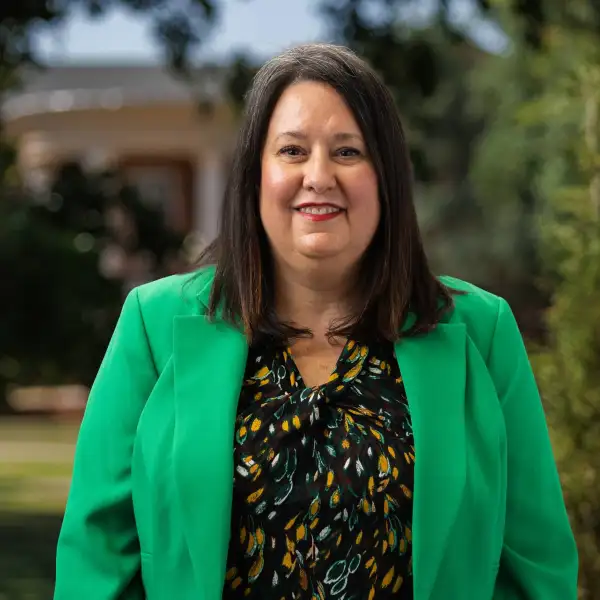
Program Director
Associate Professor
Master of Science in Speech-Language Pathology Program
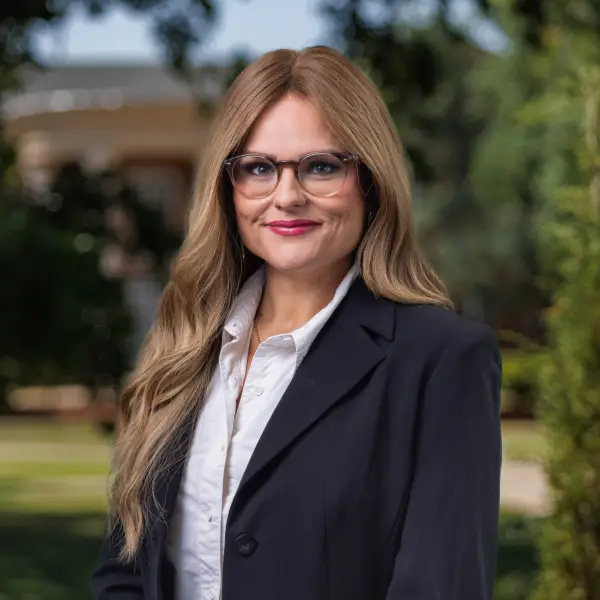
Director of Clinical Education
Associate Professor
Master of Science in Speech-Language Pathology
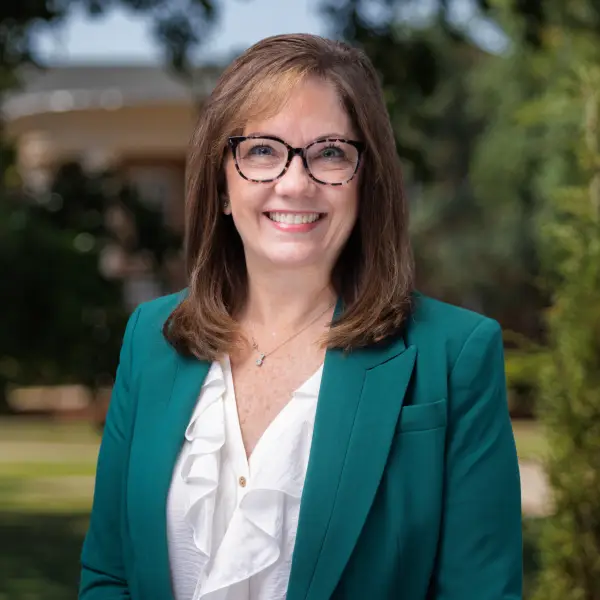
Director of Curriculum
Professor
Master of Science in Speech-Language Pathology
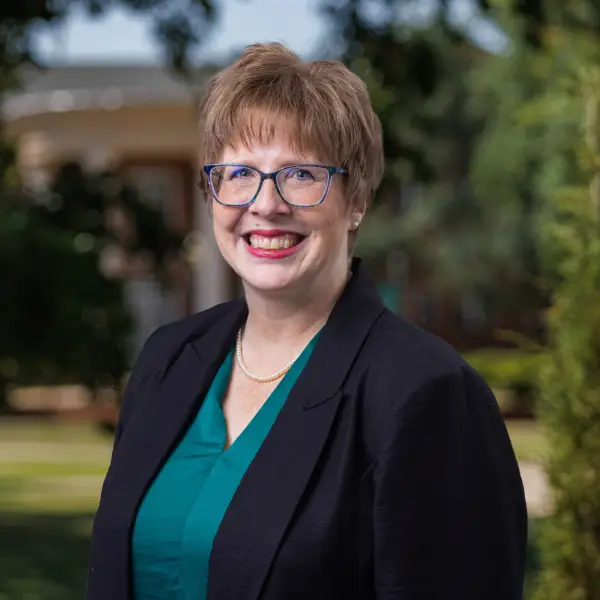
Director of Student Success
Associate Professor
Master of Science in Speech-Language Pathology
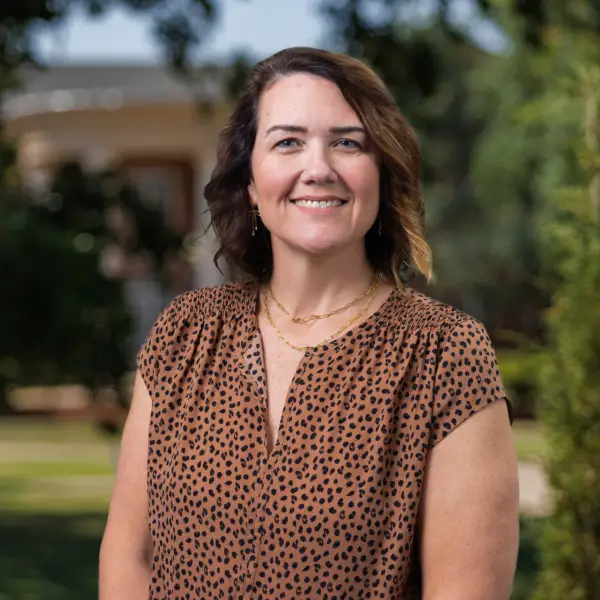
Director of Admissions
Assistant Professor
Master of Science in Speech-Language Pathology
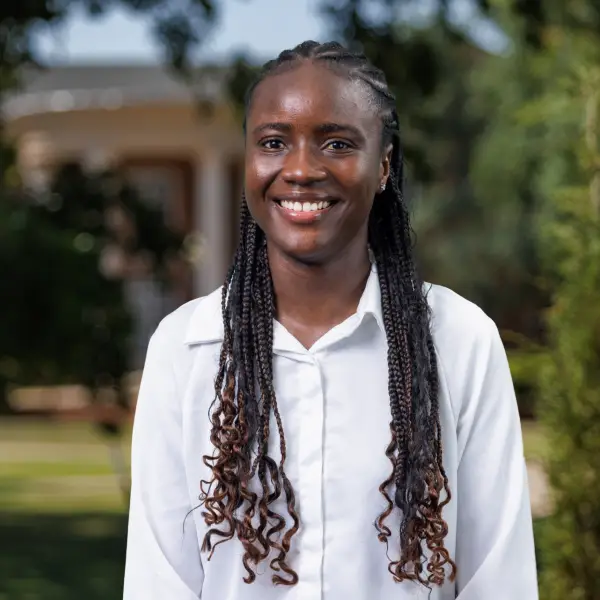
Program Coordinator for
Master of Science in Speech-Language Pathology
and Doctor of Occupational Therapy
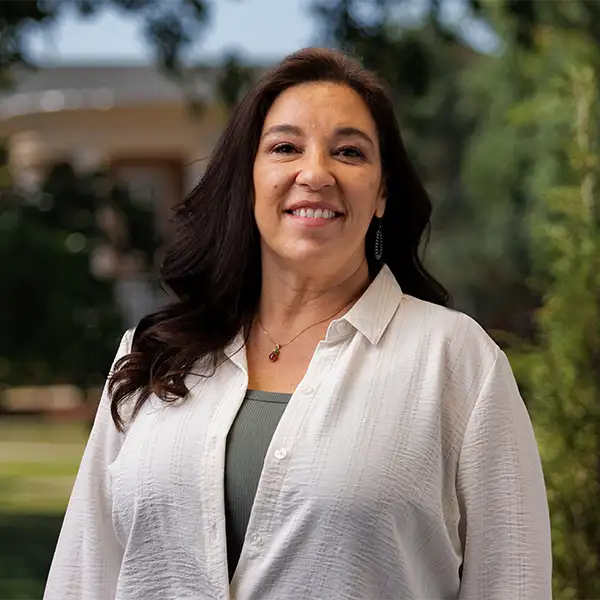
Graduate Health Sciences Lab Coordinator
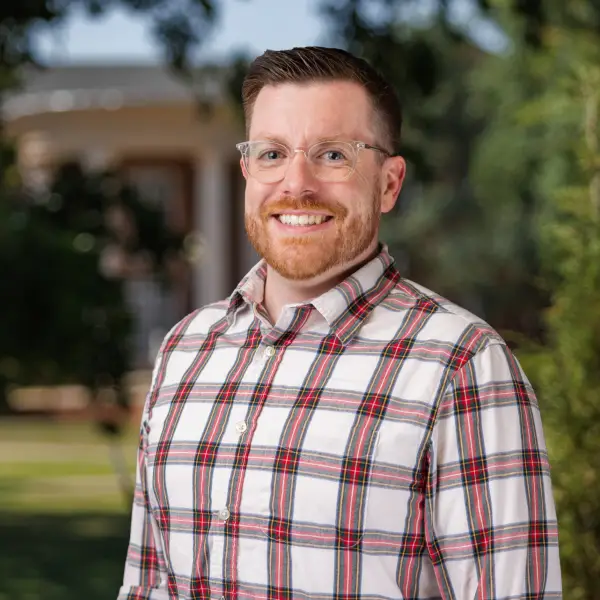
Director of Operations
Graduate and Online Health Science Program
Become a Future Shaper
Have questions? Fill out the form below or contact us by email or phone.
Email: slp@okbu.edu
Phone: 405.585.4621